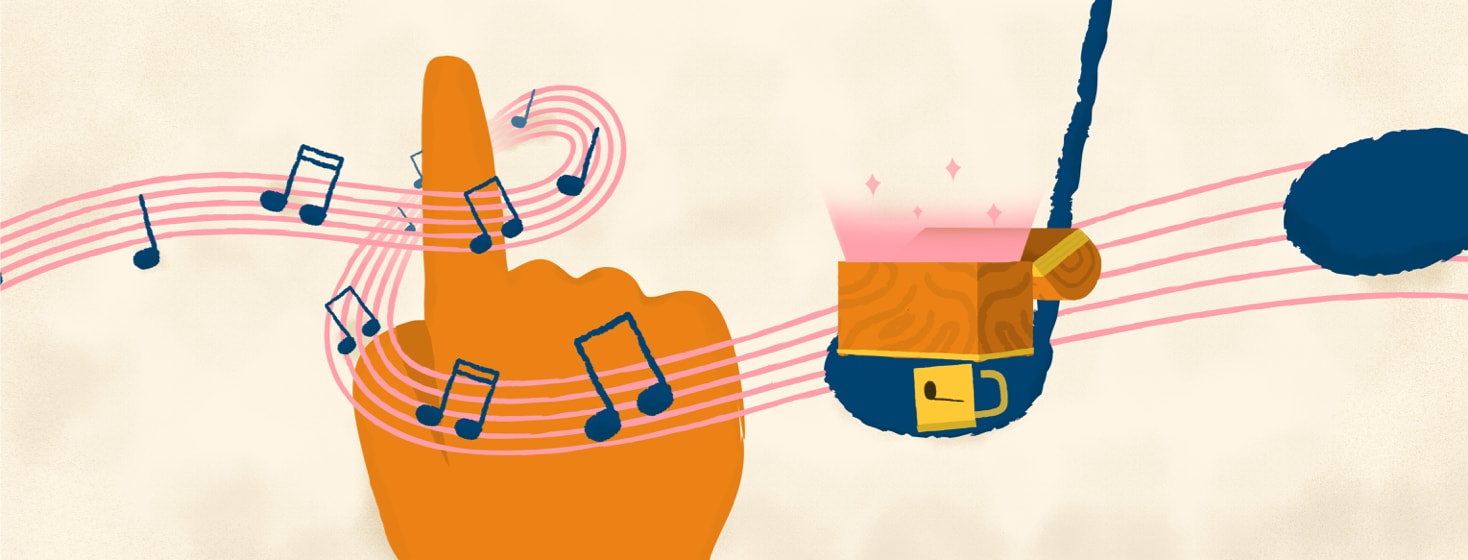Music, Patterns, & Memory
So, I have this party trick. It comes in really handy when my third graders are studying the states. I can spout out all fifty states in alphabetical order in about sixty seconds. It’s great to see the little mouths drop open, but, admittedly, it isn’t quite as impressive in a crowd of adults. I like to think I’m fairly smart, but I don’t have some super brain. I remember the states because they were taught to me in a song when I was in elementary school. I’m now far from being an elementary student myself, but once I had it drilled into my brain, it never left.
Everyone uses memory tricks
Everyone has these memory tricks from “Roy G. Biv” to “PEMDAS” to “my very eager mother just served us nine pizzas” to “every good boy does fine,” or whatever variation of these things you were taught.
I specifically recall a teacher showing us how to remember the difference between the words principal and principle. Principal has the word “pal” in it. So, this prompted us to remember that this homophone was a person. That “pal” wasn’t intentional when the English language was developed, but we learn to make meaning of what we are given.
These tricks give us something to hold onto and be able to remember for a lifetime when the straightforward concept or words aren’t as memorable.
Time-tested methods of memorization
These methods of memorization have been tested over time. They hold up. We tend to step away from these sing-song, rhyming, patterned, or acronym sort of methods as we grow older...but why? Do we think we outgrow these methods? I’ve heard that the biggest lie we tell ourselves is, “I don’t need to write that down. I’ll remember.” I know that’s true for myself.
Honestly, I personally need to employ more memory tricks in my everyday life. I forget conference call dates or what I need to pick up at the grocery store, but I never forget those songs and acronyms from thirty years ago. Those things were drilled into my long-term memory. Part of that was repetition. Part of that was the way they were taught. Our brains long to make sense of things. Our brains thrive when given patterns, rhythms, and structure.
What does the science say?
A journal of neurology called Brain published an article in 2015 that states, “Interestingly, it has been shown that different aspects of musical memory can remain intact while brain anatomy and corresponding cognitive functions are massively impaired.” So, even when a patient is massively cognitively impaired, their memories tied to music could remain unscathed.
The article goes on to say that musical memory is “often surprisingly well preserved” and may remain intact until the very last stages of Alzheimer’s disease. So, there is some scientific premise and theories are being studied in the area.1
What do I say?
Daddy lost a lot of his word power toward the end of his life. He lost a lot of his word recall ability.
If those words were in a song, though, it was different. He could still manage to conjure up some of the lyrics in songs from memory. He still hummed. He still sang. He still whistled. He still tapped his feet and hands until the very end. Those things all still meant something to him. Those melodies, rhythms, and patterns were still in there. He remembered those things even when other things failed. Even when parts of his brain had suffered severe damage from the hemorrhage, those parts that wanted rhythm, structure, and music held on.
Magic or memory cues?
So, when I worked in Pre-Kindergarten that year, and Mrs. Foote would sing songs prompting her mentally impaired three and four-year-olds to hop up and transition flawlessly, it wasn’t magic. Well, maybe it was a little magic, but part of it was that the songs were tied to their memories of what they meant. The songs meant “get up and go there” or “get up and do that.” The association between the two is what mattered. That neurological connection sparked in them, and I doubt they were so much listening to the words as responding to those sparks in their musical memories.
Much in the same way we use the memory tricks, or how a song can transport us to another place and time in an instant, these concepts could help preserve some measure of memory in Alzheimer’s and dementia patients as we move forward. So, get to singing and reciting poetry and making acronyms and patterns to store up for a later day.
It’s worth a try, right?
What is your experience with music and memory? Share your experiance in the comments or by clicking the "Share Your Story" button.

Join the conversation